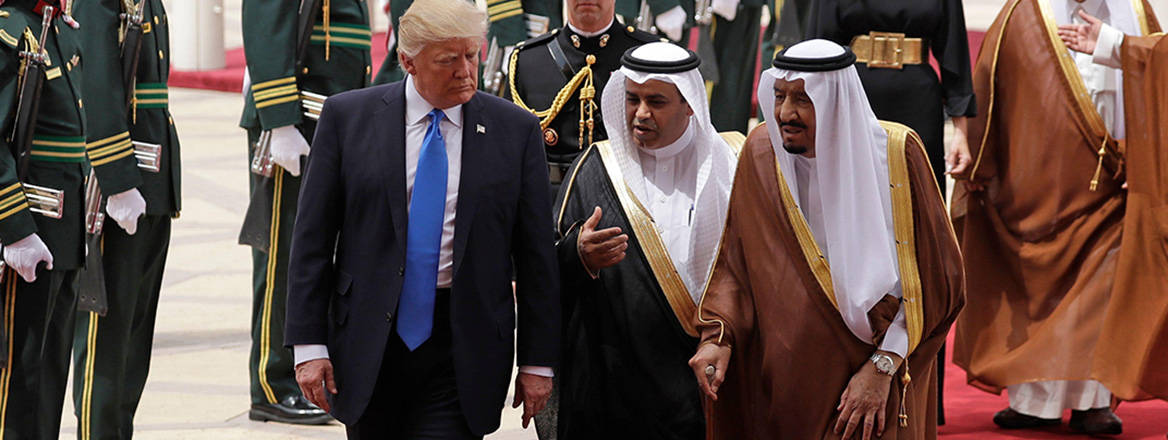The Middle East and the Return of US President Donald Trump
As President Trump is sworn in, Dr Burcu Ozcelik, our Senior Research Fellow for Middle East Security, reflects on what this means for the Middle East.
How are Middle Eastern Actors Adjusting to the Trump Presidency?
Dr Ozcelik: President Trump comes into the White House from a position of relative strength compared to the outgoing Biden administration. He is inheriting two ceasefire agreements: one, of course, between Israel and Lebanon over the future of Hezbollah, as well as the recently announced agreement for a ceasefire in Gaza. From Trump's point of view, these are already successes, and particularly the Gaza ceasefire deal he has been claiming – and will continue to claim – some credit for. It’s easier for the Trump administration to enforce the ceasefire agreements than it would have been to come into office having to negotiate such deals from scratch. And while the Biden administration will also try to claim credit, the fact remains that the White House was unable to exert effective influence over Israeli Prime Minister Benyamin Netanyahu and his government to come to the table to achieve a ceasefire agreement any sooner.
The outgoing Biden administration has had to cope with what has been a long and very gruelling 15-month war in Gaza. Either way, President Trump comes into office from a position of strength. The news of the agreement over Gaza has been received very favourably in the Arab world. And already, President Trump is being seen as the dynamic actor who was able to do what President Biden was unable to do for many months.
This is important because the Abraham Accords, I expect, will be highly significant for President Trump and his team as they approach the Middle East. And part of the task to expand the Abraham Accords countries has been the relationship with Saudi Arabia. This is a long-standing objective of relevance to US foreign policy, whether we call it an Israel-Saudi diplomatic normalisation, or a US-Saudi security agreement. Whatever we call it, should the Trump administration succeed in bringing Saudi Arabia within the Abraham Accords framework, the new US president will shift dynamics in the Middle East. And with the Gaza ceasefire agreement now in place, chances of success on the Saudi angle are becoming more favourable.
It’s easier for the Trump administration to enforce the ceasefire agreements than it would have been to come into office having to negotiate such deals from scratch
Saudi Arabia has made it very clear for several months now that a Gaza ceasefire deal was absolutely essential in order to commence or create any momentum in talks with the US about normalisation with Israel. The Saudis have made it very clear that a Gaza ceasefire, along with serious progress towards the end goal of achieving Palestinian statehood in some form, are required. Now that this has come to pass, both the Saudis and other GCC countries have a more positive perspective on their working relationship with the incoming Trump administration.
What are the Implications for Iran?
Dr Ozcelik: I think Iran is bracing itself for a hyper-mega-maximum-pressure campaign that has long been hinted at by the Trump administration. There is posturing on the Iranian side, aiming to generate a balance between defending their sovereignty and their continuing power projection in the region – which is, of course, strategically diminished. However, over the past 15 months and through Israel's military campaigns across the region, we've seen Hezbollah and Hamas severely degraded. And then, there is the sea change in Syria. So overall, Iran's position is severely weakened, and it is trying to fight back.
Iran is now very much working on the belief that it can somehow climb out of this ditch. But how it can do so, and to what extent is that possible? Masoud Pezeshkian, its president, has signalled a willingness to re-engage with the West and advance a more productive relationship with Iran. This, of course, entails talks over the nuclear programme as well. Iran comes at this from a position of relative weakness and so does Russia. And this is closely linked to what we've seen since December, with the overthrow of the Assad regime in Syria, where both states – Iran and Russia – are on the losing side of the latest transformations.
Interestingly, we're seeing greater momentum towards a closer relationship between Russia and Iran. And the fact that we are seeing this now as President Trump returns to the White House is, I think, designed to send a strong message about an effort to counterbalance the geopolitical forces that seem to be favouring the US and its allies and their vision for the Middle East right now.
© RUSI, 2025
The views expressed in this Commentary are the authors', and do not represent those of RUSI or any other institution.
For terms of use, see Website Ts&Cs of Use.
Have an idea for a Commentary you’d like to write for us? Send a short pitch to commentaries@rusi.org and we’ll get back to you if it fits into our research interests. Full guidelines for contributors can be found here.
WRITTEN BY
Dr Burcu Ozcelik
Senior Research Fellow, Middle East Security
International Security
- Jim McLeanMedia Relations Manager+44 (0)7917 373 069JimMc@rusi.org



